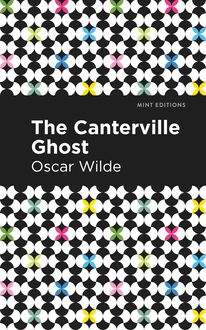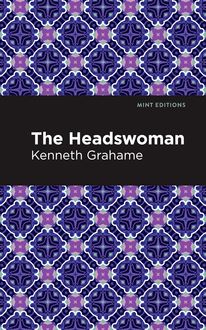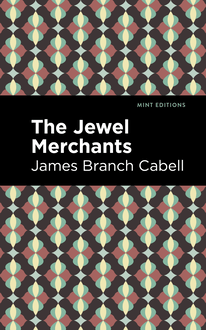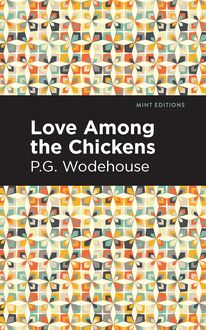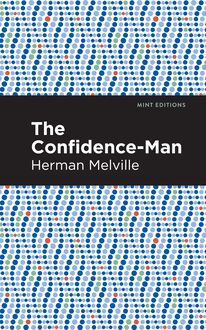-
 Univers
Univers
-
 Ebooks
Ebooks
-
 Livres audio
Livres audio
-
 Presse
Presse
-
 Podcasts
Podcasts
-
 BD
BD
-
 Documents
Documents
-
- Cours
- Révisions
- Ressources pédagogiques
- Sciences de l’éducation
- Manuels scolaires
- Langues
- Travaux de classe
- Annales de BEP
- Etudes supérieures
- Maternelle et primaire
- Fiches de lecture
- Orientation scolaire
- Méthodologie
- Corrigés de devoir
- Annales d’examens et concours
- Annales du bac
- Annales du brevet
- Rapports de stage
La lecture à portée de main
Vous pourrez modifier la taille du texte de cet ouvrage
Découvre YouScribe en t'inscrivant gratuitement
Je m'inscrisDécouvre YouScribe en t'inscrivant gratuitement
Je m'inscrisEn savoir plus
Vous pourrez modifier la taille du texte de cet ouvrage
En savoir plus

Description
When the famed 18th century astrologer, John Partridge, publicly discredited the Christian church, Jonathan Swift developed an immense distaste for the man. Feeling insulted and malicious, Swift decided to celebrate his favorite holiday, All Fools Day, more commonly known as April Fools, while also appeasing his self-appointed feud with Partridge. Under the disguise of a pseudonym, Swift published The Bickerstaff-Partridge Papers as a series of three letters. The first letter, titled Predictions for the Year 1708 started with a criticism of the cultural impact astrology had on their society. Eventually, the narrative shifts to list predictions including political uprisings, the birth of children, weather patterns, battle outcomes, and most importantly, the death of notable figures, including John Partridge. To accompany this letter, Swift next published The Accomplishments of the First of Mr. Bickerstaff’s Predictions, which was written from the perspective of a government employee who supported and confirmed the validity of Bickerstaff’s predictions. This section also included an elegy for John Partridge, furthering the claim that the man was dead. These papers gained immense popularity, and convinced the public that these predictions were legitimate. This caused quite the disturbance for Partridge, who was often waken by the sound of people crying outside his home, mourning his death. After Partridge published a paper to deny the rumors that he was dead, Swift responded with the final part of The Bickerstaff-Partridge Papers, pondering the philosophical definition of death to convince his audience that Partridge was dead once more.
Though it began as a prank, Swift’s The Bickerstaff-Partridge Papers transformed into a life-altering work that employed careful prose and satire so supreme that it went unnoticed by many. Following its popularity in 1708 and 1709, The Bickerstaff-Partridge Papers further inspired celebrated authors such as Richard Steele, Benjamin Franklin, and H.P. Lovecraft.
This edition of The Bickerstaff-Partridge Papers by Jonathan Swift features a new, eye-catching cover design and is printed in a readable font, making it both accessible and modern.
Sujets
Informations
| Publié par | Mint Editions |
| Date de parution | 19 janvier 2021 |
| Nombre de lectures | 0 |
| EAN13 | 9781513275307 |
| Langue | English |
| Poids de l'ouvrage | 2 Mo |
Informations légales : prix de location à la page 0,0250€. Cette information est donnée uniquement à titre indicatif conformément à la législation en vigueur.
Extrait
The Bickerstaff-Partridge Papers
Jonathan Swift
The Bickerstaff-Partridge Papers was first published in 1708.
This edition published by Mint Editions 2020.
ISBN 9781513270302 | E-ISBN 9781513275307
Published by Mint Editions®
minteditionbooks.com
Publishing Director: Jennifer Newens
Design & Production: Rachel Lopez Metzger
Project Manager: Micaela Clark
Typesetting: Westchester Publishing Services
C ONTENTS P REDICTIONS F OR T HE Y EAR 1708
P REDICTIONS F OR T HE Y EAR 1708
Wherein the month, and day of the month are set down, the persons named, and the great actions and events of next year particularly related, as will come to pass.
Written to prevent the people of England from being farther imposed on by vulgar almanack-makers.
By Isaac Bickerstaff, Esq.
I have long consider’d the gross abuse of astrology in this kingdom, and upon debating the matter with myself, I could not possibly lay the fault upon the art, but upon those gross impostors, who set up to be the artists. I know several learned men have contended that the whole is a cheat; that it is absurd and ridiculous to imagine, the stars can have any influence at all upon human actions, thoughts, or inclinations: And whoever has not bent his studies that way, may be excused for thinking so, when he sees in how wretched a manner that noble art is treated by a few mean illiterate traders between us and the stars; who import a yearly stock of nonsense, lyes, folly, and impertinence, which they offer to the world as genuine from the planets, tho’ they descend from no greater a height than their own brains.
I intend in a short time to publish a large and rational defence of this art, and therefore shall say no more in its justification at present, than that it hath been in all ages defended by many learned men, and among the rest by Socrates himself, whom I look upon as undoubtedly the wisest of uninspir’d mortals: To which if we add, that those who have condemned this art, though otherwise learned, having been such as either did not apply their studies this way, or at least did not succeed in their applications; their testimony will not be of much weight to its disadvantage, since they are liable to the common objection of condemning what they did not understand.
Nor am I at all offended, or think it an injury to the art, when I see the common dealers in it, the students in astrology, the philomaths, and the rest of that tribe, treated by wise men with the utmost scorn and contempt; but rather wonder, when I observe gentlemen in the country, rich enough to serve the nation in parliament, poring in Partridge’s almanack, to find out the events of the year at home and abroad; not daring to propose a hunting-match, till Gadbury or he have fixed the weather.
I will allow either of the two I have mentioned, or any other of the fraternity, to be not only astrologers, but conjurers too, if I do not produce a hundred instances in all their almanacks, to convince any reasonable man, that they do not so much as understand common grammar and syntax; that they are not able to spell any word out of the usual road, nor even in their prefaces write common sense or intelligible English. Then for their observations and predictions, they are such as will equally suit any age or country in the world. “This month a certain great person will be threatened with death or sickness.” This the news-papers will tell them; for there we find at the end of the year, that no month passes without the death of some person of note; and it would be hard if it should be otherwise, when there are at least two thousand persons of not in this kingdom, many of them old, and the almanack-maker has the liberty of chusing the sickliest season of the year where he may fix his prediction. Again, “This month an eminent clergyman will be preferr’d;” of which there may be some hundreds half of them with one foot in the grave. Then “such a planet in such a house shews great machinations, plots and conspiracies, that may in time be brought to light:” After which, if we hear of any discovery, the astrologer gets the honour; if not, his prediction still stands good. And at last, “God preserve King William from all his open and secret enemies, Amen.” When if the King should happen to have died, the astrologer plainly foretold it; otherwise it passes but for the pious ejaculation of a loyal subject: Though it unluckily happen’d in some of their almanacks, that poor King William was pray’d for many months after he was dead, because it fell out that he died about the beginning of the year.
To mention no more of their impertinent predictions: What have we to do with their advertisements about pills and drink for the venereal disease? Or their mutual quarrels in verse and prose of Whig and Tory, wherewith the stars have little to do?
Having long observed and lamented these, and a hundred other abuses of this art, too tedious to repeat, I resolved to proceed in a new way, which I doubt not will be to the general satisfaction of the kingdom: I can this year produce but a specimen of what I design for the future; having employ’d most part of my time in adjusting and correcting the calculations I made some years past, because I would offer nothing to the world of which I am not as fully satisfied, as that I am now alive. For these two last years I have not failed in above one or two particulars, and those of no very great moment. I exactly foretold the miscarriage at Toulon, with all its particulars; and the loss of Admiral Shovel, tho’ I was mistaken as to the day, placing that accident about thirty-six hours sooner than it happen’d; but upon reviewing my schemes, I quickly found the cause of that error. I likewise foretold the Battle of Almanza to the very day and hour, with the loss on both sides, and the consequences thereof. All which I shewed to some friends many months before they happened, that is, I gave them papers sealed up, to open at such a time, after which they were at liberty to read them; and there they found my predictions true in every article, except one or two, very minute.
As for the few following predictions I now offer the world, I forbore to publish them till I had perused the several almanacks for the year we are now enter’d on. I find them in all the usual strain, and I beg the reader will compare their manner with mine: And here I make bold to tell the world, that I lay the whole credit of my art upon the truth of these predictions; and I will be content, that Partridge, and the rest of his clan, may hoot me for a cheat and impostor, if I fail in any singular particular of moment. I believe, any man who reads this paper, will look upon me to be at least a person of as much honesty and understanding, as a common maker of almanacks. I do not lurk in the dark; I am not wholly unknown in the world; I have set my name at length, to be a mark of infamy to mankind, if they shall find I deceive them.
In one thing I must desire to be forgiven, that I talk more sparingly of home-affairs: As it will be imprudence to discover secrets of state, so it would be dangerous to my person; but in smaller matters, and that are not of publick consequence, I shall be very free; and the truth of my conjectures will as much appear from those as the other. As for the most signal events abroad in France, Flanders, Italy and Spain, I shall make no scruple to predict them in plain terms: Some of them are of importance, and I hope I shall seldom mistake the day they will happen; therefore, I think good to inform the reader, that I all along make use of the Old Style observed in England, which I desire he will compare with that of the news-papers, at the time they relate the actions I mention.
I must add one word more: I know it hath been the opinion of several of the learned, who think well enough of the true art of astrology, That the stars do only incline, and not force the actions or wills of men: And therefore, however I may proceed by right rules, yet I cannot in prudence so confidently assure the events will follow exactly as I predict them.
I hope I have maturely considered this objection, which in some cases is of no little weight. For example: A man may, by the influence of an over-ruling planet, be disposed or inclined to lust, rage, or avarice, and yet by the force of reason overcome that bad influence; and this was the case of Socrates: But as the great events of the world usually depend upon numbers of men, it cannot be expected they should all unite to cross their inclinations, from pursuing a general design, wherein they unanimously agree. Besides the influence of the stars reaches to many actions and events which are not any way in the power of reason; as sickness, death, and what we commonly call accidents, with many more, needless to repeat.
But now it is time to proceed to my predictions, which I have begun to calculate from the time that the Sun enters into Aries. And this I take to be properly the beginning of the natural year. I pursue them to the time that he enters Libra, or somewhat more, which is the busy period of the year.
-
 Univers
Univers
-
 Ebooks
Ebooks
-
 Livres audio
Livres audio
-
 Presse
Presse
-
 Podcasts
Podcasts
-
 BD
BD
-
 Documents
Documents
-
Jeunesse
-
Littérature
-
Ressources professionnelles
-
Santé et bien-être
-
Savoirs
-
Education
-
Loisirs et hobbies
-
Art, musique et cinéma
-
Actualité et débat de société
-
Jeunesse
-
Littérature
-
Ressources professionnelles
-
Santé et bien-être
-
Savoirs
-
Education
-
Loisirs et hobbies
-
Art, musique et cinéma
-
Actualité et débat de société
-
Actualités
-
Lifestyle
-
Presse jeunesse
-
Presse professionnelle
-
Pratique
-
Presse sportive
-
Presse internationale
-
Culture & Médias
-
Action et Aventures
-
Science-fiction et Fantasy
-
Société
-
Jeunesse
-
Littérature
-
Ressources professionnelles
-
Santé et bien-être
-
Savoirs
-
Education
-
Loisirs et hobbies
-
Art, musique et cinéma
-
Actualité et débat de société
- Cours
- Révisions
- Ressources pédagogiques
- Sciences de l’éducation
- Manuels scolaires
- Langues
- Travaux de classe
- Annales de BEP
- Etudes supérieures
- Maternelle et primaire
- Fiches de lecture
- Orientation scolaire
- Méthodologie
- Corrigés de devoir
- Annales d’examens et concours
- Annales du bac
- Annales du brevet
- Rapports de stage





